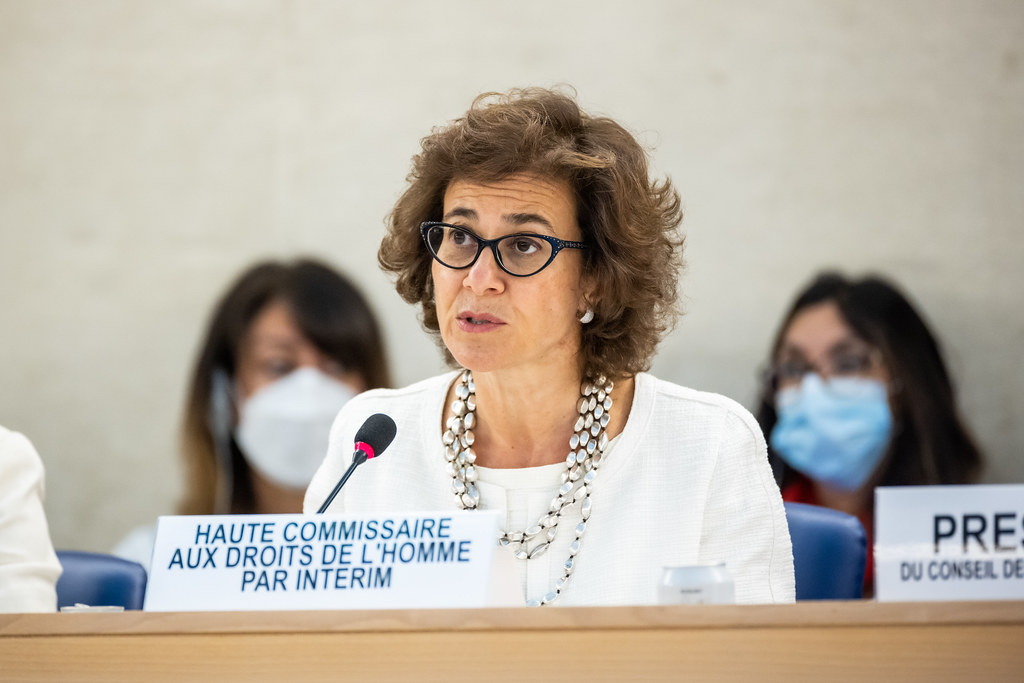
During the 54th session of the United Nations Human Rights Council, Deputy High Commissioner, Nada Al-Nashif, raised concerns over increasing military land grabs in the Tamil homeland; the failure to hold Provincial Council elections; crackdowns on memorial events; and the use of state forces to intimidate protesters and journalists.
Economic concern
Noting the financial crisis in Sri Lanka, Al-Nashif detailed how it was hitting the poorest and most marginalised communities the hardest.
“As the country’s poverty rate has doubled from 13% in 2021 to 25% in 2022, another 2.5 million people have been driven into poverty and an estimated 37% of households face acute food insecurity” she notes.
Whilst encouraging international actors to support the island’s economic recovery, equal emphasis was placed on pushing the Sri Lankan government to deliver on promises of good “governance, transparency and accountability”.
Encroachment on Tamil land
The Deputy High Commissioner’s statement also detailed concern over continued land grabs in the North-East by the Sri Lankan military, forestry department and for Buddhist heritage conversation, despite occurring in predominately Hindu and Muslim land.
Coupled with this increasing encroachment on native Tamil land, the Deputy High Commissioner details how the Sri Lankan government has failed to hold local elections or uphold its promises made under the 13th Amendment, which pertain to devolution.
Accountability
Whilst taking note of proposals for a domestic-led truth and reconciliation commission, Al-Nashif stressed the need for meaningful consultation with victims and civil society groups. She further emphasised to end “all forms of harassment and unlawful and arbitrary surveillance against human rights defenders and victims’ groups” which include the crackdowns on memorialisation events.
His statement stressed that “Truth-seeking alone will not be sufficient and must be accompanied by a clear commitment to accountability, including through an independent ad hoc special court”.
He added that “urgent confidence building steps are needed to create an environment in which a genuine reconciliation and transitional justice processes could succeed”.
The High Commissioner maintained the urgent need to establish and independent and transparent investigation into the Easter Sunday bombing with international assistance “and the full participation of victims and their representatives”.
He further maintained that:
“While it remains the obligation of the Sri Lankan authorities to acknowledge past violations and undertake credible accountability measures, this Council and the Member States can play an important and complementary role in advancing accountability”.
Additionally, she noted that whilst Sri Lanka rejected UN Resolution 51/1, through the accountability project is established to collect and preserve relevant information and evidence for judicial proceedings, continues to make progress.
Crackdown on civil liberties
The Deputy High Commissioner’s speech stressed the importance of fostering an environment of free expression, peaceful assembly, and democratic space. The upcoming legislation, particularly the Anti-Terrorism Bill and media broadcasting regulations, also raised concerns, with a call for a moratorium on the existing Prevention of Terrorism Act (PTA) and expedited reviews of PTA cases.
Read the full statement here.
